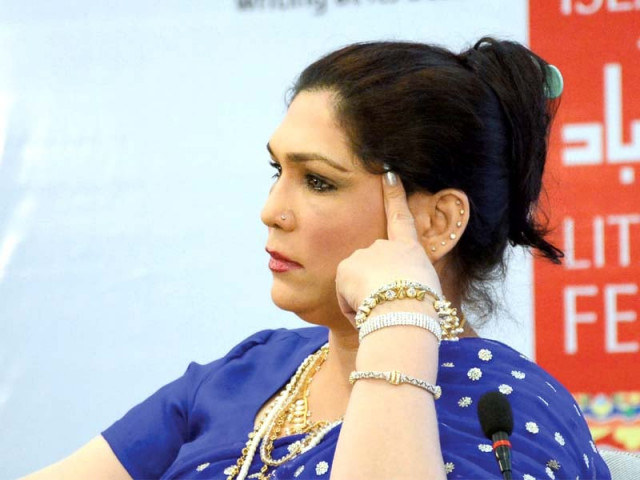‘Are we children of a lesser god?’
She pointed out that the state has shifted the burden of responsibility on to NGOs and civil society

Almas Bobby: PHOTO: HUMA CHOUDHARY/ EXRESS
We, like you are also descendants of Adam. Why can’t people love us, simply as humans?
Laxmi Narayan Tripathi and Almas Bobby, transgender rights activists from the east and west of the Indo-Pak border, both made this statement as they focused on starkly similar issues facing transgender people, but it was Hina Jillani and Aasim Sajjad Akhtar — a lawyer and an educator-politician respectively — who sent the strongest reminders of the failings of the state and the people.
Jillani spoke of how the state, including the legal system, absolved itself of responsibility as far as guaranteeing equal rights and the right to a dignified life. She pointed out that the state has shifted the burden of responsibility on to NGOs and civil society, while reiterating,” It is the state’s responsibility”.
“This is a struggle in a society that takes pride in rejecting differences, not just in our social life, but in our policymaking,” she added.
Akhtar agreed with the state’s failures and expanded on one of Jillani’s comments by referencing women’s rights and the duplicity of many supposedly like-minded people — those who publicly claim to be in favour of women’s and sexual minority rights, but will not grant them to the women and sexual minorities in their own homes. A leftist politician, he also spoke specifically of the duplicity of some on the left, as many seem to abandon the leftist principles of social liberalism and egalitarianism when it comes to transgender issues.
“People claim it is against the natural order. How is that even possible? I’m on the left of the political spectrum, and I admit, even the left has weaseled out of its responsibility towards transgender people,” he said.
Earlier, Tripathi spoke of how transgender people were relatively respected members of society prior to the Raj era, citing European culture and sensibilities of ‘decency’ as being a major factor in the fall from grace of the transgender in India and Pakistan, explaining how transgender people used to have honourable positions in royal courts, harems, and other places.
“No (straight) man or woman knows what it feels like to be discarded and unloved from childhood,” she said, describing the experiences of most transgender people today.
Bobby, one of the principal figures in the fight for transgender rights in Pakistan, reminded everyone that education alone is not a solution, as illiterate and highly educated people are equally capable of vile behaviour. She highlighted the need to change mindsets, rather than clamouring for jobs or better living standards. “We are also creations of God. The brushstroke was just slightly different.”
Tripati had noted earlier that having money is not a total solution, as residents of ‘good neighbourhoods’ would throw a fit at having a transgender neighbour, even though, on close examination, their daily lives are largely the same.
Published in The Express Tribune, April 26th, 2015.



















COMMENTS
Comments are moderated and generally will be posted if they are on-topic and not abusive.
For more information, please see our Comments FAQ